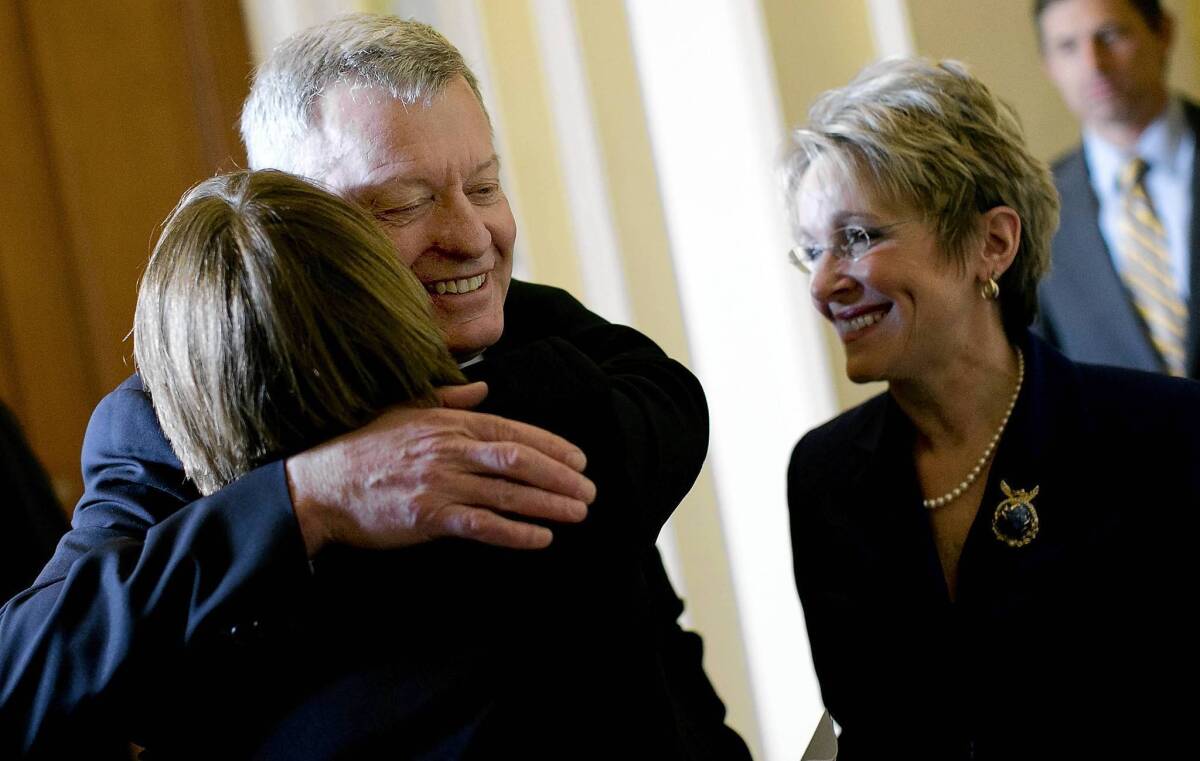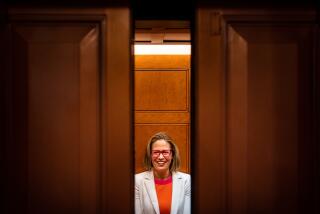Montana’s Max Baucus announces retirement from Senate

Democratic Sen. Max Baucus of Montana, who sometimes crossed his party in the powerful role of Finance Committee chairman, announced Tuesday he would retire at the end of his term — complicating Democrats’ efforts to keep control of the Senate in the 2014 midterm election.
The move caught many in Washington by surprise. Baucus had stockpiled $5 million — a fortune by Montana standards — and voted last week to oppose compromise gun control legislation, which some viewed as a calculation aimed at winning reelection in his libertarian-leaning state.
Back home, however, it was known that Baucus, 71, had been quietly weighing his future for some time. He recently announced plans to move from Helena, the state capital, and build a new residence in Bozeman with his third wife, a former aide. The two married in July 2011.
“Deciding not to run for reelection was an extremely difficult decision,” Baucus said in a statement. “After thinking long and hard, I decided I want to focus the next year and a half on serving Montana unconstrained by the demands of a campaign.”
Though Baucus was no shoo-in for a seventh term, his decision to step aside means Democrats will have yet another open seat to defend next year, when the party faces the head winds that typically accompany a president’s second midterm vote. Five other Democrats have announced plans to retire; three of them, like Baucus, come from Republican-leaning or toss-up states.
In all, Democrats will have to defend 21 seats to 14 for the Republicans. Counting independents who caucus with them, Democrats now hold a 55-45 Senate majority.
Baucus’ decision immediately turned the focus to Montana’s popular former Democratic governor, Brian Schweitzer. Outspoken and flamboyantly folksy, Schweitzer would be a prohibitive favorite for his party’s nomination and probably the strongest Democrat in a general election.
Republicans have several contenders, including two state lawmakers who have already started their campaigns.
In a telephone interview, Schweitzer, 57, declined to say whether he would run for Baucus’ seat, but wouldn’t rule it out. Since leaving office in January, he said, he has focused exclusively on an effort to take over the state’s financially struggling Stillwater mine as part of an investor group seeking to save its roughly 1,600 jobs. Schweitzer says he will make no decision until after a shareholder meeting set for May 2.
“I’ll look around once I climb that mountain,” said Schweitzer, who served two terms as governor. “There should be a pretty good view from there.”
As chair of the Finance Committee, Baucus had been expected to be a major player in the coming debate over tax reform; his lame-duck status could diminish that role.
Baucus first went to Washington in 1974 as part of a post-Watergate wave of Democrats. Despite his rank, he was never one to adhere to party lines. He angered many Democrats by working closely with former President George W. Bush on tax and Medicare legislation, and some blamed him for complicating the passage of President Obama’s sweeping healthcare law. Although he voted for the measure, Baucus has criticized its implementation.
Some liberals celebrated his impending retirement.
“Max Baucus has a history of voting with corporate interests and not the interests of Montana voters,” said Stephanie Taylor, co-founder of the Progressive Change Campaign Committee, which quickly began a “Draft Brian Schweitzer” effort.
Obama issued a statement thanking Baucus for his service and wishing him and his family well.
Lisa Mascaro and Paul West in the Washington bureau contributed to this report.
More to Read
Start your day right
Sign up for Essential California for news, features and recommendations from the L.A. Times and beyond in your inbox six days a week.
You may occasionally receive promotional content from the Los Angeles Times.







